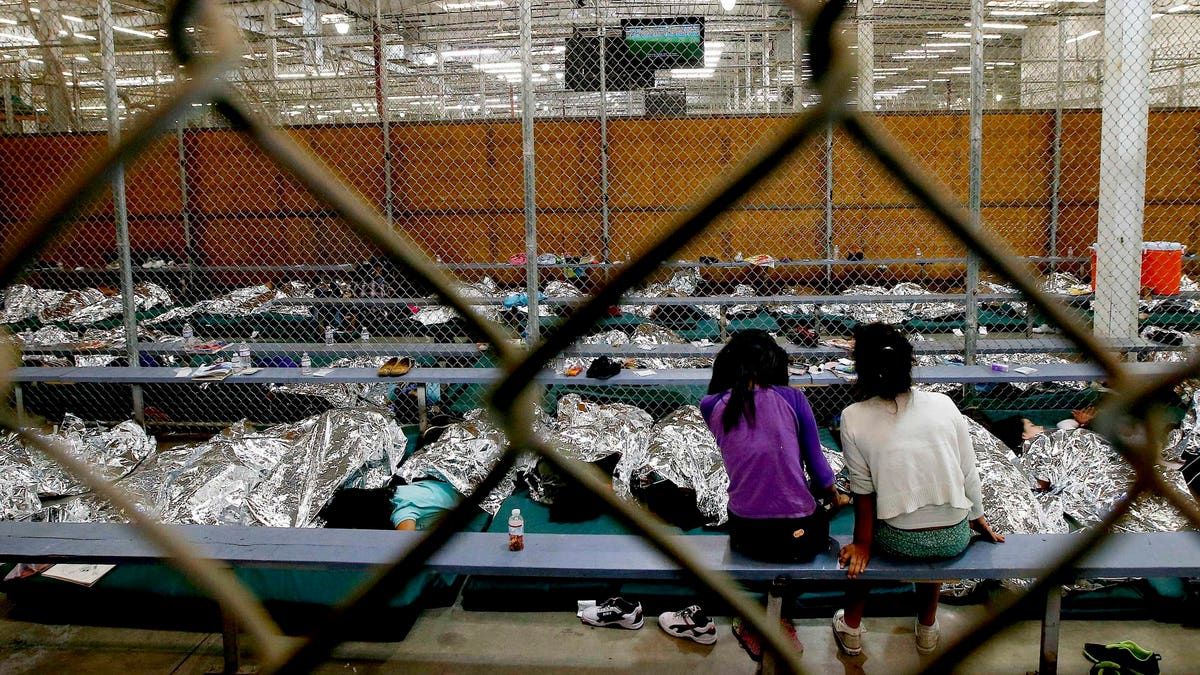
U.S. Customs and Border Protection Nogales Placement Center in Nogales, Ariz, in June 2014. (ap)
As federal officials prepare for a possible wave of immigrant families this summer, a Texas court will hear a case on immigrant detention centers licensing and delve into whether children crossing the border illegally can be held for long periods at those facilities.
U.S. Immigration and Customs Enforcement (ICE) said it is trying to comply with a July ruling ordering that the children should be released "without unnecessary delay."
ICE, which continues housing children at two detention centers in Texas while it appeals the ruling, said it is trying to comply with the order by using additional resources to process and either release or return families "as expeditiously as possible."
The agency has also — through the private prison firms that run its two Texas detention centers — sought to have the facilities licensed as child care centers so that the care of immigrant children can be properly reviewed.
But immigrant advocates are challenging whether the Texas Department of Family and Protective Services has the authority to license such detention centers as child care facilities. A hearing on the lawsuit is set for Friday in an Austin courtroom.
Advocates say the lawsuit is part of their broader legal efforts to have federal officials again adhere to a longtime agreement that called for children and their families to be held only for a short time before being released to family, friends or others while their cases are decided.
Federal officials say these ongoing courtroom battles — in Texas and California — make it more difficult for them to respond to this summer's expected influx of immigrant families. They believe the centers help deter illegal immigration.
Austin-based Grassroots Leadership wants a temporary injunction that would delay the granting of a child care facility license to the 2,400-bed South Texas Family Residential Center in Dilley. The other Texas detention center, the 500-bed facility in Karnes City, was granted a temporary license in April.
"This is part of a broader effort, both federal litigation and a lot of advocacy, calling on the administration to not make the largest trend in locking up families since Japanese internment part of its immigration legacy," said Bob Libal, Grassroots' executive director.
While illegal immigration has tended to rise during the summer months, federal immigration officials have not offered predictions for this summer, only saying that during the current fiscal year, each month — except for March — has seen record monthly apprehensions of families at the border.
ICE spokeswoman Jennifer Elzea called the licensing of Karnes "an important step" in improving oversight and transparency of family detention centers.
The two Texas centers, both south of San Antonio, opened in 2014.
Immigration advocates say the Texas Department of Family and Protective Services has ignored concerns that keeping children at the centers is physically and mentally harmful to them.
The Texas agency declined to comment ahead of the hearing.
"To the extent state inspections and the enforcement of safety standards can safeguard children in any residential facility, the children will be less likely to suffer alleged harm based on detention if (the agency) is allowed to regulate the facilities," lawyers with the Texas Attorney General's Office said in court documents filed Tuesday.
ICE is also facing problems at its third family detention center — in Pennsylvania — as state officials there in January announced they wouldn't renew its child care license. The facility, which has a capacity for 96 residents, remains open pending an appeal.
ICE has suggested it might change how it houses families and children caught at the border but has offered few specifics. The agency recently sought potential service providers to run state-licensed residential care facilities for families and children held by the agency, ideally in Arizona, California, New Mexico and/or Texas.
What is happening in Texas could set a precedent for bypassing licensing laws if officials decide to open new detention centers in other states, said Wendy Cervantes, vice president of immigration and child rights for Washington, D.C.-based First Focus, an advocacy group for children and families.
Based on reporting by the Associated Press.




